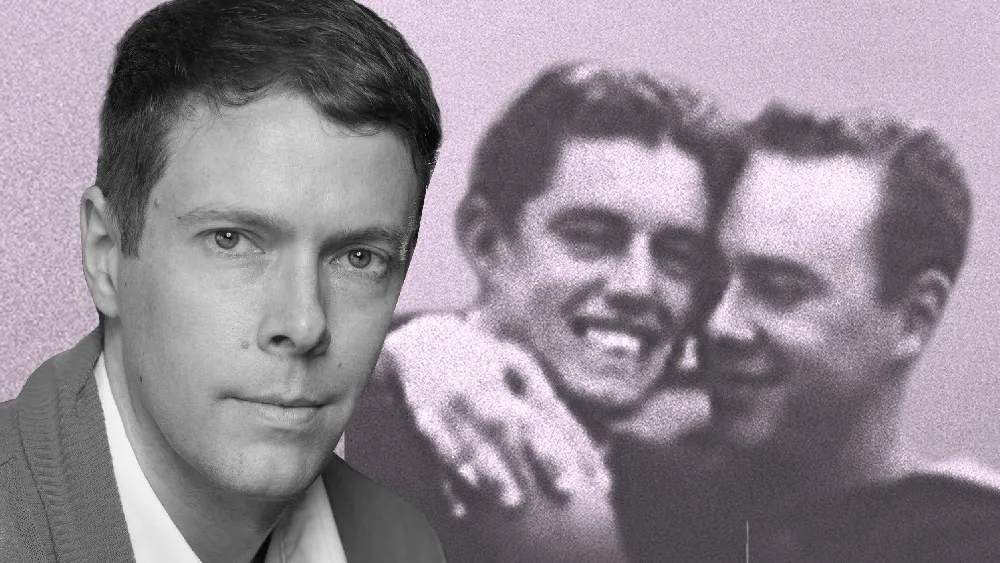October 26, 2014
LGBT History Month Profiles: Orlando Cruz & Billie Holiday
Kilian Melloy READ TIME: 4 MIN.
October is LGBT History Month. Each week throughout the month, Hotspots will be profiling two of the people named to Equality Forum's LGBT History Month icon list, to showcase the great things LGBT people have done, and are doing.
Orlando Cruz
Orlando Cruz was born on July 1, 1981 in Yabucoa in southeastern Puerto Rico. Cruz started boxing at the age of seven, racking up 179 wins and just 10 losses as an amateur. At the age of nineteen, he was selected to be a part of the Puerto Rican National Boxing Team as they traveled to compete in the Summer Olympic Games in Sydney, Australia. Also on his team were former world champions Miguel Cotto and Ivan Calderon.
A few months after the Olympics, Cruz decided to debut as a professional boxer in the featherweight division (he is 5'4? and weighs around 126 pounds). In his first eighteen professional matches, his record was 17-0-1, earning him the nickname "El Fen�meno" (The Phenom). He earned his first world title in March 2008, and didn't lose a professional match until 2009. His current record is 20-4-1, with 10 of those 20 wins achieved by total knockout.
In October 2012 Cruz came out, becoming the first openly gay boxer to acknowledge his sexual orientation while still competing professionally. Cruz remarked that he had wanted to be public about being gay as early as 12 years ago, and made sure he had the support of his family, friends, teammates, manager and promoter before making the choice to come out to the public. He received an outpouring of public support, not just from fans worldwide but also in Puerto Rico: he was congratulated by his former Olympic teammate Miguel Cotto and Cruz also received encouragement from singer Ricky Martin.
In his public statement, Cruz said, "I've been fighting for more than 24 years and as I continue my ascendant career, I want to be true to myself...I want to try to be the best role model I can be for kids who might look into boxing as a sport and a professional career. I have and will always be a proud Puerto Rican. I have always been and always will be a proud gay man."
Cruz was one of the first people inducted into the National Gay and Lesbian Sports Hall of Fame in 2013. Later that year he married Jos� Manuel Col�n in an autumn Central Park wedding. Pedro Julio Serrano of the National Gay and Lesbian Task Force served as a witness.
Billie Holiday
Billie Holiday, "Lady Day," was born Eleanora Fagan in Philadelphia on April 7, 1915. She grew up in Baltimore, her mother's hometown. Her mother was a single parent and worked long hours, many times away from home, and for the first ten years of her life, Billie had little adult supervision. By the time she was 11, she had dropped out of school, and by the age of 12 she was an errand girl at a brothel. By the age of 13, her and her mother had moved to Harlem and they both worked as prostitutes until they were arrested in a police raid.
In her teens Billie started singing in dance halls and nightclubs in Harlem. She picked the stage name "Billie Holiday" from actress Billie Dove and musician Clarence Holiday. Benny Goodman discovered Billie when she was 16, and producer John Hammond hired her to record with Goodman two years later. Hammond was particularly impressed with her, saying that she "sang like an improvising jazz genius," which doubly impressed him considering that voice came from a woman.
By 1938, she had made Hammond's label, Brunswick Records, a lot of money, and she had toured in Count Basie's Big Band. Her singles were finally finding an audience with white America, and she began to chart on the pop music hit parades. It was her performance of the song "Strange Fruit" at Caf� Society in Greenwich Village that earned her positive reviews from Time magazine.
In the 1940s, she was making more than a quarter of a million dollars per year, selling platinum singles, and selling out venues like Carnegie Hall in New York City. But a string of problems with the law, stemming from her drug use and alcoholism, put a damper on the tail end of her career in the late 1940s and early 1950s. Her love affairs with women and also with abusive men were tabloid fodder, which hurt Billie's image.
She tried to revive her career in the 1950s, and succeeded in selling out Carnegie Hall for two shows in 1956. However, her voice started to show signs of strain from all of her drug and drink problems. Finally, the substance abuse ended up taking its toll, and she was diagnosed with cirrhosis of the liver in January 1959. Just six months later, on July 17, 1959, she would die from complications of cirrhosis of the liver. Diana Ross would go on to play Billie in the 1972 film Lady Sings the Blues, which was loosely based on her autobiography of the same name.
Kilian Melloy serves as EDGE Media Network's Associate Arts Editor and Staff Contributor. His professional memberships include the National Lesbian & Gay Journalists Association, the Boston Online Film Critics Association, The Gay and Lesbian Entertainment Critics Association, and the Boston Theater Critics Association's Elliot Norton Awards Committee.

 Copyright HotSpots! Magazine. For more articles from HotSpots! visit
Copyright HotSpots! Magazine. For more articles from HotSpots! visit 
